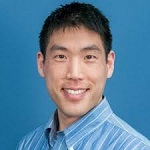Quantum Biology and its Implications for the Future of Biophotonics Research and Innovation
This webinar is hosted By: Tissue Imaging and Spectroscopy Technical Group
23 July 2024 13:00 - 14:00
Eastern Daylight/Summer Time (US & Canada) (UTC -04:00)In this webinar hosted by the Tissue Imaging and Spectroscopy Technical Group, Youngchan Kim will offer an introductory exploration into the emerging and fascinating realm of quantum biology and its potential implications for future advancements in biophotonics.
Participants will be introduced to the fundamental principles of quantum biology, uncovering how quantum phenomena influence biological processes. Furthermore, the webinar will explore how a deeper understanding of quantum biology holds promise for the development of quantum-enhanced sensing technologies. The webinar will elucidate the potential applications of quantum biology and sensing in biophotonics, highlighting opportunities for advancing research and innovation in the field.
This webinar offers a valuable opportunity for students, researchers, and engineers to explore the interdisciplinary frontier of quantum mechanics and envision its implications for the future of biophotonics.
Subject Matter Level: Introductory - Assumes little previous knowledge of the topic
What You Will Learn:
• Integration of quantum concepts in Biophotonics
• Current research trends and challenges
• Potential impact on healthcare and biomedicine
Who Should Attend:
• Students, researchers, and engineers specialized in biophotonics, with interest in novel technologies that could shape the future of medical diagnostics, imaging and therapeutics
About the Presenter: Youngchan Kim from The University of Surrey
 Youngchan Kim is Lecturer in Quantum Biology from the Department of Microbial Sciences in the School of Biosciences. He joined the University in 2020. His group uses protein engineering and optical spectroscopy techniques to study biological systems that give rise to quantum phenomena under physiological conditions. His group is also interested in developing optical sensing and imaging techniques to improve our understanding of the pathogenesis and treatment of human diseases. He obtained a BSc in Physics from Chung-Ang University in South Korea in 2006 and gained a PhD in terahertz spectroscopy from Korea Advanced Institute of Science and Technology (KAIST) in 2011. Prior to joining the University of Surrey, he completed three postdoctoral training fellowships at KAIST (2011-2013), Imperial College London (2013-2015), and the US National Institutes of Health (2015-2020).
Youngchan Kim is Lecturer in Quantum Biology from the Department of Microbial Sciences in the School of Biosciences. He joined the University in 2020. His group uses protein engineering and optical spectroscopy techniques to study biological systems that give rise to quantum phenomena under physiological conditions. His group is also interested in developing optical sensing and imaging techniques to improve our understanding of the pathogenesis and treatment of human diseases. He obtained a BSc in Physics from Chung-Ang University in South Korea in 2006 and gained a PhD in terahertz spectroscopy from Korea Advanced Institute of Science and Technology (KAIST) in 2011. Prior to joining the University of Surrey, he completed three postdoctoral training fellowships at KAIST (2011-2013), Imperial College London (2013-2015), and the US National Institutes of Health (2015-2020).
